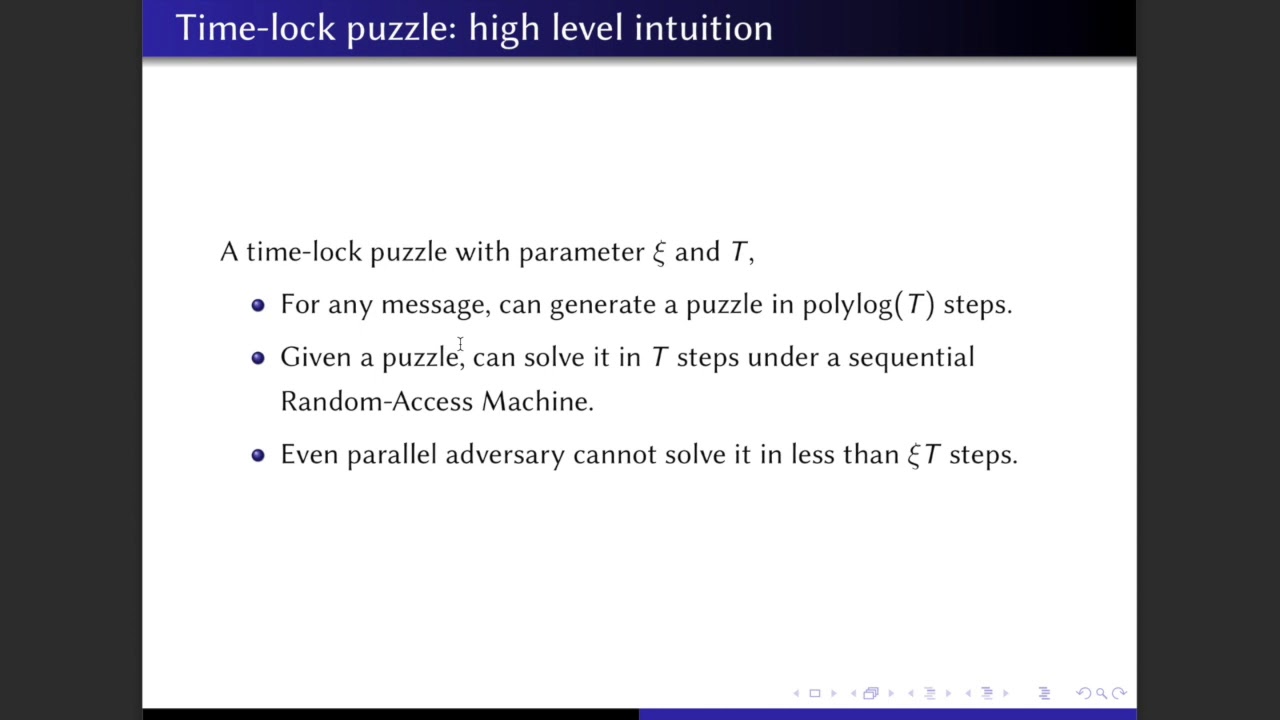Welcome to the resource topic for 2020/1236
Title:
Round-Efficient Byzantine Broadcast under Strongly Adaptive and Majority Corruptions
Authors: Jun Wan, Hanshen Xiao, Srinivas Devadas, Elaine Shi
Abstract:The round complexity of Byzantine Broadcast (BB) has been a central question in distributed systems and cryptography. In the honest majority setting, expected constant round protocols have been known for decades even in the presence of a strongly adaptive adversary. In the corrupt majority setting, however, no protocol with sublinear round complexity is known, even when the adversary is allowed to {\it strongly adaptively} corrupt only 51% of the players, and even under reasonable setup or cryptographic assumptions. Recall that a strongly adaptive adversary can examine what original message an honest player would have wanted to send in some round, adaptively corrupt the player in the same round and make it send a completely different message instead. In this paper, we are the first to construct a BB protocol with sublinear round complexity in the corrupt majority setting. Specifically, assuming the existence of time-lock puzzles with suitable hardness parameters and that the decisional linear assumption holds in suitable bilinear groups}, we show how to achieve BB in (\frac{n}{n-f})^2 \cdot \poly\log \lambda rounds with 1-\negl(\lambda) probability, where n denotes the total number of players, f denotes the maximum number of corrupt players, and \lambda is the security parameter. Our protocol completes in polylogarithmically many rounds even when 99% of the players can be corrupt.
ePrint: https://eprint.iacr.org/2020/1236
Talk: https://www.youtube.com/watch?v=bdIheXq64zM
Slides: https://iacr.org/submit/files/slides/2020/tcc/tcc2020/128/slides.pdf
See all topics related to this paper.
Feel free to post resources that are related to this paper below.
Example resources include: implementations, explanation materials, talks, slides, links to previous discussions on other websites.
For more information, see the rules for Resource Topics .
